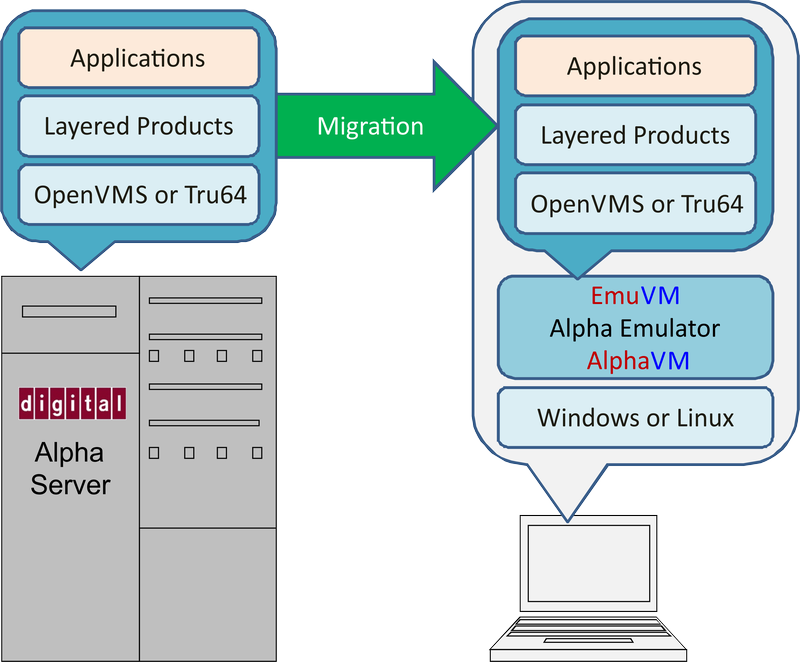Virtual Alpha system performance
There are many aspects in a computer system, whose performance can be important. For instance, we can talk about the CPU performance, the disks read or write speed, the network throughput, etc. A virtual Alpha system in the same way has the same performance parameters. However, these parameters are usually not proportionally slower or faster on the virtual system with respect to the real system. For instance, the CPU of the virtual system can be faster than of the real one, while the network speed is slower.
Therefore, when reasoning about the performance of some application, it must be specified, which performance aspects are important for this applications. For this reason some applications are called CPU bound, some IO (disk or network) bound.
In many cases the performance is not really important at all. If the application is usually idle and sometimes does short computations and data transfers, the performance will hardly be an issue.
Please check the benchmark page for the comparison of various aspects of AlphaVM and real Alpha performance.
(more…)
